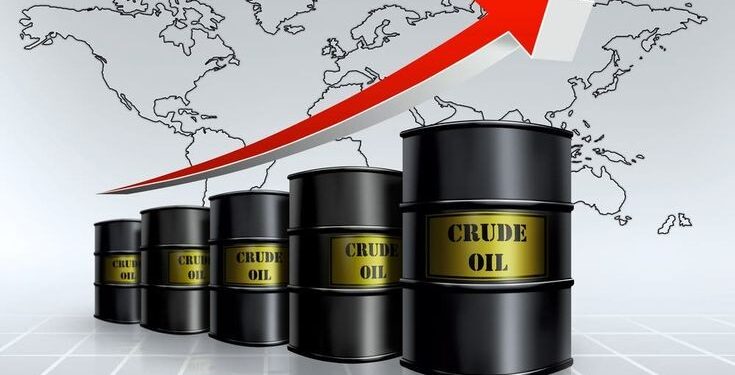Global oil prices experienced a sharp rise on Monday as Brent crude soared past $81 per barrel following new U.S.-imposed sanctions on Russia’s energy sector. The sanctions, aimed at reducing Russia’s oil export capacity, have sent shockwaves through the global oil market, prompting emergency responses from major importers like China and India.
The latest sanctions, announced last Friday, target key players in Russia’s oil trade, including shipping firms, insurance companies, and over 150 tankers. These measures are part of ongoing efforts by the U.S. and its allies to pressure Moscow into negotiating a peace settlement with Ukraine. The sanctions come at a time when the oil market was already anticipating a surplus, making the sudden surge in prices unexpected and concerning for traders and refiners worldwide.
Reports indicate that independent refiners in China and traders in India held urgent meetings to assess the potential impact of the sanctions on their ongoing and future oil imports from Russia. Many of these traders are concerned that the new restrictions could disrupt crude deliveries already in transit, leading to prolonged supply chain challenges that may last for up to six months.
Since the conflict between Russia and Ukraine began, the U.S. and Europe have introduced several rounds of sanctions against Moscow. However, countries like China and India have continued to import significant amounts of Russian oil, with India emerging as one of the top buyers. Despite Western criticism, China has defended its trade with Russia, with President Xi Jinping arguing that no single nation has the authority to impose unilateral sanctions on another sovereign state.
The latest sanctions also target Russian energy giants Gazprom Neft and Surgutneftegas, both of which export nearly one million barrels of crude daily. The blacklist now includes over 20 subsidiaries of these companies, along with more than 180 vessels linked to Russia’s so-called “shadow fleet” — ships used to bypass previous embargoes. The Biden administration’s move to double the number of targeted oil tankers reflects the urgency of its efforts to restrict Russia’s oil revenues.
While the sanctions aim to weaken Russia’s economy and bolster Ukraine’s position in potential peace negotiations, they also pose significant risks to global oil supplies. Industry analysts have warned that a substantial reduction in Russian exports could disrupt the global oil market, eating into the anticipated surplus of one million barrels per day projected for this year.
As the sanctions take effect, oil traders around the world are bracing for further market volatility. The ripple effects of the sanctions could lead to sustained high prices, particularly if Russian supply losses are more severe than anticipated. Independent refiners and traders in major oil-importing countries like China and India will likely continue to monitor the situation closely as they navigate the evolving landscape of global energy trade.
The latest sanctions on Russia are part of a broader geopolitical strategy by the U.S. and its allies to curtail Moscow’s influence and hasten an end to the war in Ukraine. However, these measures could also have significant consequences for the global oil market, potentially leading to prolonged supply disruptions and higher prices in the months ahead.





















































